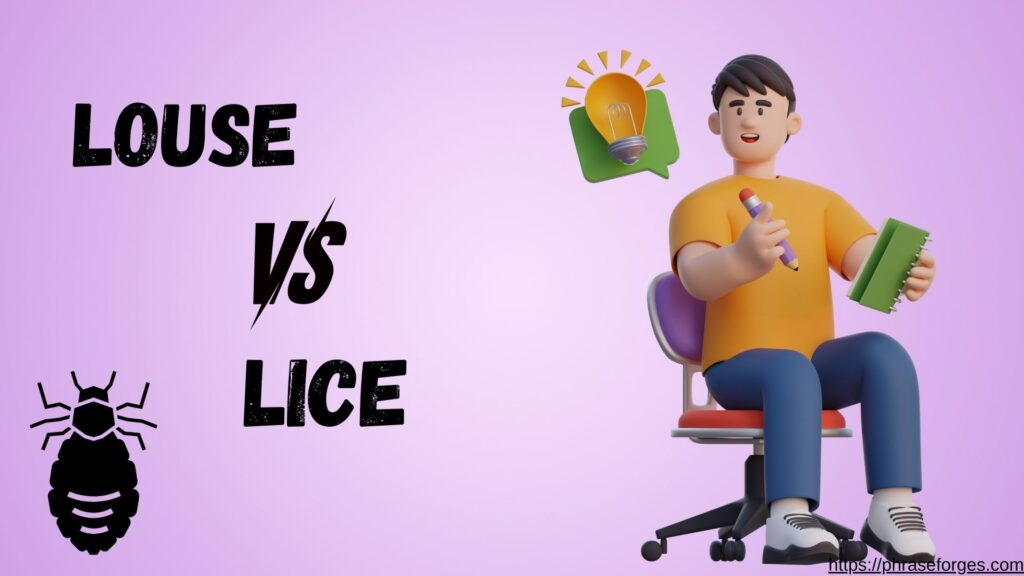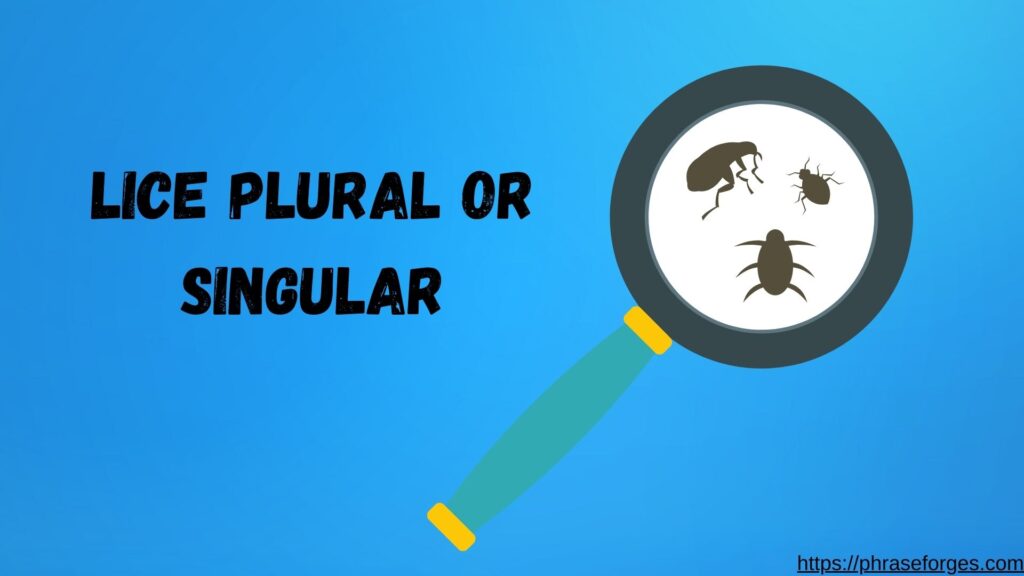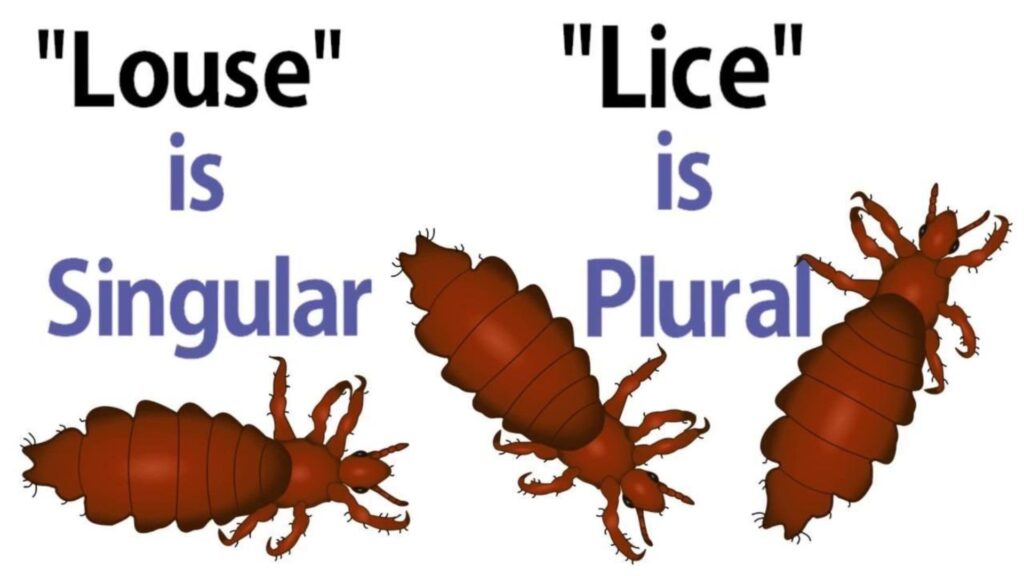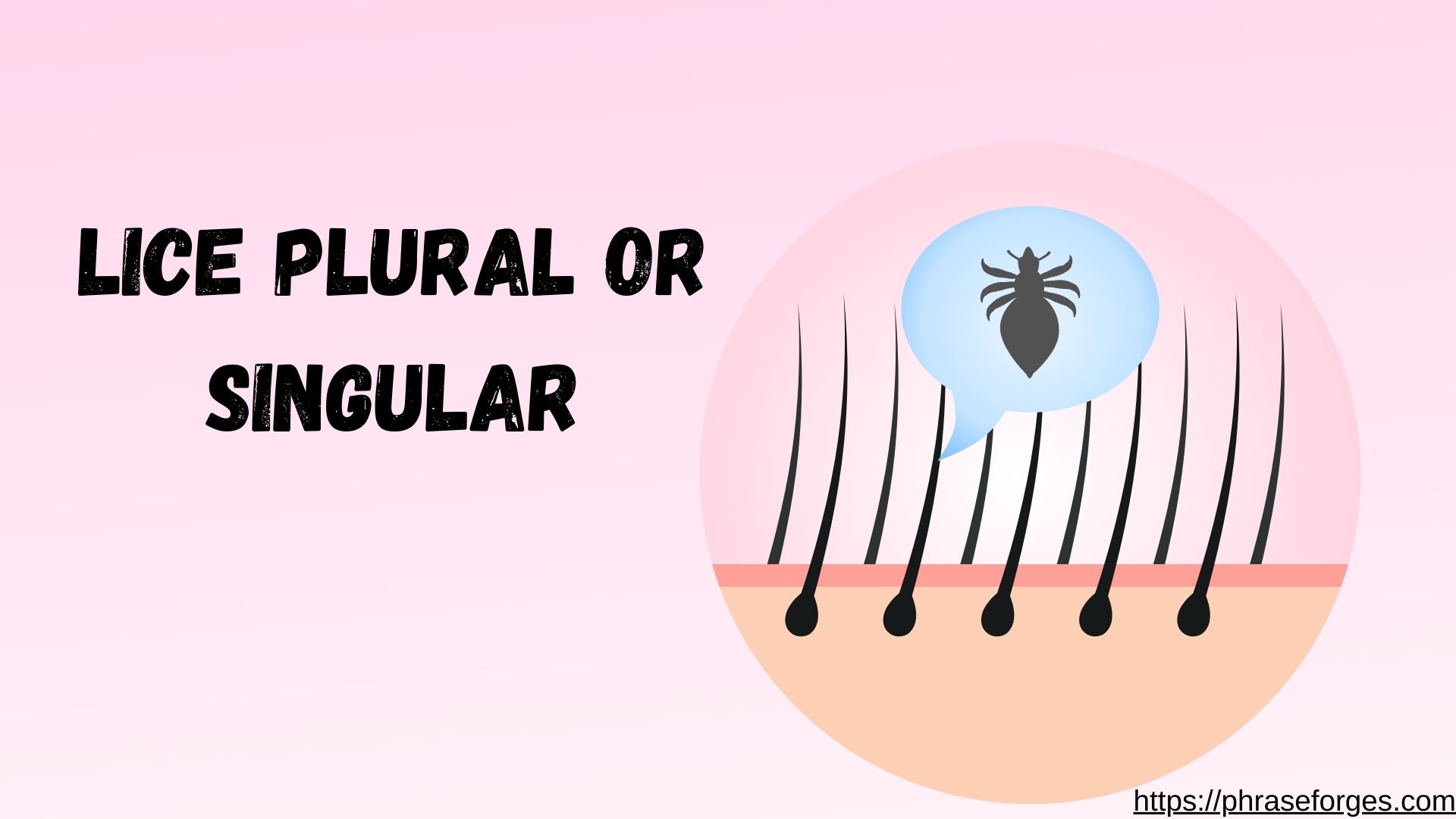Let’s get this out of the way right off the bat: “Lice” is the plural form of the word “louse.” If that sounds strange, you’re not alone this is one of those irregular plurals in English that throws even native speakers for a loop.
But don’t worry. By the end of this guide, you’ll not only understand the difference between lice and louse, but you’ll also be able to use both correctly in sentences, emails, and casual conversation.
Understanding the Basics: Louse vs Lice

In English, most nouns become plural by simply adding -s or -es at the end:
- cat → cats
- bush → bushes
- fox → foxes
These are called regular plural nouns. But “louse” doesn’t follow that rule. Like its linguistic cousin “mouse,” which becomes “mice,” “louse” becomes “lice” a textbook example of an irregular plural noun formed by I-mutation (or I-umlaut), an ancient vowel-shift mechanism from Germanic languages.
| Singular | Plural |
|---|---|
| louse | lice |
| mouse | mice |
| goose | geese |
So to answer the question “Is lice plural or singular?” lice is plural. The singular is louse.
When Would You Use “Louse”?
You’d use louse when referring to a single insect. Although not as common in everyday speech, it’s still grammatically essential. Here’s an example:
“During the examination, a single louse was found on the student’s scalp.”
Here’s a more practical example you might find in a workplace email:
Subject: Head Check Reminder
Hi Rachel,
Just a quick note the nurse reported finding a louse on one of the children this morning. Please remind parents to check their kids’ heads tonight.
Thanks,
– Karen
In this context, “a louse” indicates just one parasite, and the grammar is syntactically correct. Saying “a lice” here would be incorrect and awkward.
When to Use “Lice”
“Lice” is the plural form, and it’s by far the more commonly used term. That’s because lice usually don’t travel alone you rarely encounter just one.
“The school reported an outbreak of lice in the third-grade classrooms.”
Here’s a message a parent might write:
Subject: Concerns About the Lice Outbreak
Dear Principal Jackson,
I heard that several students in my daughter’s class were found to have lice. Could you please let me know what precautions are being taken to prevent further spread?
Sincerely,
Ellen Roberts
The use of lice here is grammatically correct and reflects the real-world situation of multiple parasites.
The Science Behind the Terms
Lice (plural) are wingless parasitic insects that feed on the blood of mammals. They’re notorious for their sticky eggs (called “nits”), their itchy bites, and their ability to spread rapidly through direct contact.
- Head lice are the most common type found in humans.
- Each louse survives by feeding on blood several times a day.
- Without a host, lice can’t live for more than 24–48 hours.
Fun fact: The term “louse” is so embedded in historical and biological contexts that it even shows up in some of the earliest recorded scientific studies. For instance, Robert Hooke, a pioneer of microscopy, included a detailed sketch of a louse in his 1665 book Micrographia.
Why the Confusion?

People often get confused between louse and lice for two main reasons:
- We rarely talk about a single louse. Most people encounter multiple at once hence “lice.”
- The plural form doesn’t end in “s,” so it doesn’t look plural.
Think of it like:
- Is lice plural? ✅ Yes.
- What is the singular of lice? → It’s louse.
- What’s the plural of louse? → It’s lice.
Collective Nouns and Groupings
Did you know there’s a collective noun for lice? You can refer to a group of lice as a “nest” as in:
“A nest of lice was discovered in the abandoned pillowcase.”
Other interesting collective nouns:
- A colony of ants
- A swarm of bees
- A flock of birds
- A nest of lice
These phrases are used more in literary or descriptive contexts than in everyday speech but are still grammatically correct.
Real-World Usage: Correct vs. Incorrect
Let’s break down a few examples of syntactic correctness.
| Correct Sentence | Incorrect Sentence |
|---|---|
| “I found a louse in my hair.” | “I found a lice in my hair.” |
| “The nurse checked the class for lice.” | “The nurse checked the class for louse.” |
| “Lice spread easily through shared combs.” | “Louse spread easily through shared combs.” |
Etymology and Linguistic Roots
The word louse dates back to Old English “lūs,” which itself stems from the Proto-Germanic “lusō” and Proto-Indo-European “lus” both words associated with blood-sucking insects.
This ancient root is also shared with:
- Old Norse: “lús”
- Dutch: “luis”
- German: “Laus”
Through centuries of vowel modification, “louse” became “lice,” just as “mouse” became “mice.” This change is a classic I-umlaut transformation a type of vowel shift still found in several English irregular plurals.
How to Remember the Difference
Need a quick trick to lock it in? Think of it like this:
- One mouse, many mice
- One louse, many lice
Or use this analogy:
If a mouse has mice, a louse must have lice.
Simple, right?
Using It in Conversation
Here are a few common, casual ways the words pop up:
Parent: “Ugh, the school just emailed again. More kids have lice. I’m going to have to wash everything!”
Child: “Wait…what’s a louse?”
Parent: “It’s what we call just one of them. But trust me, there’s never just one!”
Wrap-Up: Quick Grammar Recap

Let’s tie everything together:
✅ Louse = singular
✅ Lice = plural
❌ Don’t say “a lice” it’s grammatically incorrect
✅ Use lice when there are multiple (which is almost always)
✅ It’s an irregular plural, not formed by adding -s or -es
✅ Comes from Proto-Germanic roots with I-umlaut vowel shift
Commonly Searched Questions
Here’s what people are often Googling now you’ll know the answers:
- What is the singular of lice? → Louse
- Is lice singular or plural? → Plural
- How do you use louse in a sentence? → “The doctor found a louse behind his ear.”
- What’s the difference between louse and lice? → Louse = one, Lice = many
- Is lice a count noun? → Yes. You can count them: one louse, two lice, etc.
Final Thought
While it may feel odd to use the word louse, understanding this irregular plural enriches your grasp of English grammar and gives you an edge when using (or teaching) correct language.
So next time someone asks, “Is lice plural or singular?” you can confidently say:
“Lice is plural. The singular is louse. Think mouse and mice you’ll never forget it.”

